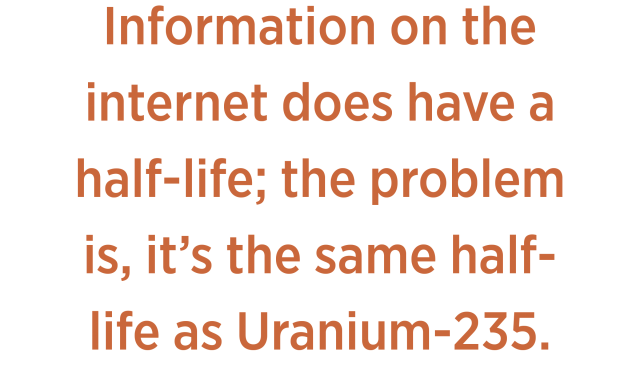It was a confrontation, 1946-style. A restrained but slightly animated press was questioning newly minted Chief of Naval Operations Fleet Admiral Chester Nimitz on one of the most contentious courts-martial in U.S. Navy history: that of Captain Charles Butler McVay, commanding officer of the USS Indianapolis (CA-35). McVay had been under house arrest since the announcement of his guilty verdict in December 1945, it was now March, and Nimitz was announcing McVay’s release, as well as the complete setting aside of his punishment.
A lot of questions were asked of Admiral Nimitz during that press conference, but one was not: Admiral Nimitz, did your personal experience being court-martialed for the grounding of the USS Decatur influence your opinion on the McVay affair? That’s because the Decatur grounding was not covered by the press contemporaneously; essentially nobody knew about it even in 1946, and Nimitz’s career had suffered no ill effects.1
I believe it is axiomatic that under similar conditions today, Nimitz likely would have been separated from the Navy as an ensign.2 But his punishment was merely a service record entry that was obscure at the time and essentially forgotten by 1941. If Nimitz didn’t talk about the event (and I suspect he didn’t until success in his career was fully realized), he could simply have carried on with his life.
That would not be the case today.
While I suspect my point is clear, it needs to be said with conviction:
In an era of data backups and failsafe technology, the notion of “temporariness” with respect to information is irrefutably and permanently dead.
Nearly everything that is written, imaged, posted, or self-reported today is backed up multiple times, nearly instantaneously, on servers around the world. It likely will be accessible forever, and there is nothing you can do to change that.
There is no such thing as “delete.” That concept died about a decade ago. Deleting information online is a pipe dream. While you might be able to eliminate a local image of your data that will make it difficult for you to find, it will live forever on some replicant remote server.
Your delete key laughs at you every time you press it.
Nothing is temporary anymore. When I say this to people, I often hear how sad it makes them. I usually respond with, “It’s not happy; it’s not sad. It’s merely a fact. In the era of cloud computing, if it happened, and was witnessed, it will live on forever.”
The most proximate effect of this new law is that it gives a degree of gravitas to nearly everything you say, do, post, or repeat. And since the internet is context-blind (as well as intent-blind), everything you say and do will be analyzed, scrutinized, atomized, randomized, and philosophized from every conceivable angle, in the most public of fora.
We all make bad choices at some point, and sometimes we are even forgiven, but forgiveness does not erase the bad choice from the internet.
Do something demonstrably stupid and you must assume it will be revealed, not merely to those who witnessed the deed, but also to future employers, insurers, family members (including family members yet to be born), law enforcement officials, the press, and the pope.
Even when you do something that is not stupid but merely more appropriately kept private, think once, twice, a third time, then throw your computer out the window. And if you still feel compelled to share with the internet gods your battle with serious illness, your struggling relationship, your financial woes, your unruly children, or the upcoming month-long trip where your house will remain empty, talk to someone about it (preferably inside a vault or confessional) before you post it. After all, they would find out about it anyway as soon as you posted it.
During that period of contemplation, reflect on the reality that over the course of years, when this information still will be accessible, laws will change, people will change, opinions will change, context will change, and what may be low impact today could come back and hit you hard—for example, when a health provider learns about your self-declared health problems in some future era where protections from preexisting conditions may be withdrawn.
Remember that when a person voluntarily posts something on the internet as publicly accessible information, there is no presumptive right to privacy.
You also must worry about the tangentially stupid, which is what happens when idiotic words or images that you did not write or create ricochet off you by means of a reposting or retweeting, at which time they become yours.
It is astounding to me how many people today say they understand that but still act as if they don’t.
For example, I make it a habit when I’m considering someone for employment to do a Google, Facebook, and Instagram search, looking for publicly available information on the person under consideration. This is not “hacking” into the person’s private life. Rather, it’s a survey of available information the potential employee usually made public himself/herself. I do this to see what kind of information that person believed appropriate to put “out there” as a reflection of himself/herself.
Most information uncovered is innocuous, but there have been at least four times in the past five years when I ruled out a potential employee because he or she failed the “Is this a person/persona I want representing my organization?” test.
In one case, it was a retweet of a borderline racist comment. When challenged, the potential employee claimed not to understand the meaning of the post, but that in itself told me all I needed to know.
Another time it was a public “liking” of the legalization of marijuana in the potential employee’s state. Regardless of state laws, marijuana use is still a federal offense, and it occurred to me that a potential security clearance examiner might find this problematic.
Another time the matter was a “too much information” kind of post, way too personal and way too public. In this case, I didn’t even want to discuss the matter with the candidate—I simply passed him by.
The last “great reveal” was a news story covering a bad-judgment event from several years prior that the person didn’t have the good sense to tell me about himself. I guess he hoped I would not look.
All this information was years old, and it’s likely the candidates believed it would have a reasonable half-life. Information on the internet does have a half-life; the problem is, it’s the same half-life as Uranium-235 (703.8 million years).
If the internet had existed when Admiral Nimitz was an ensign, local but globally accessible press reports might have caused us to lose a great leader before he had the opportunity to lead us to victory in the Pacific campaign of World War II. That’s sad, but it’s a fact.
But even if there wasn’t public, internet coverage of Nimitz’s court-martial, I doubt he would have posted about his agony on Facebook, making his temporary defrocking permanent.
The concept of “temporary” is dead. Think before you click. Protect your legacy. And maybe one day you too will rise to do great things.
1. During the 1946 press conference, Nimitz raised the matter of his court-martial himself, but none of the press present seemed to know anything about it.
2. Courts-martial were used quite differently in the early 1900s from how they are today, sometimes as investigatory tools in addition to criminal proceedings. But the fact that Nimitz was convicted and received a letter of reprimand for hazarding his ship (the same charge that was levied against McVay) and still rose to the rank of fleet admiral speaks volumes.





